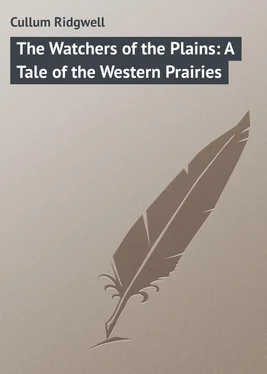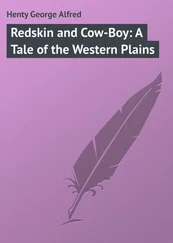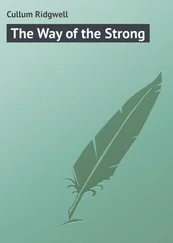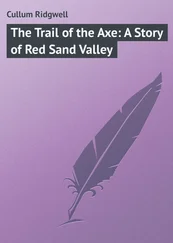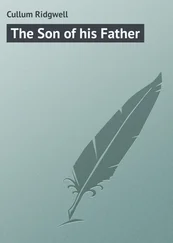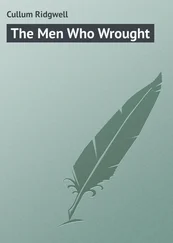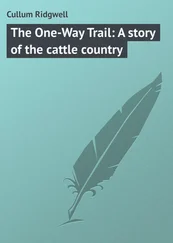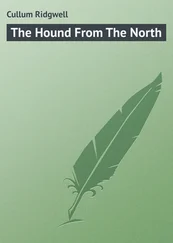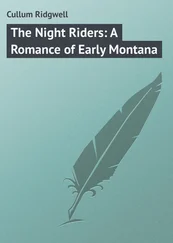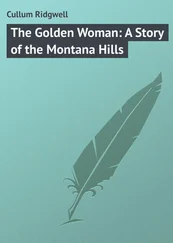Ridgwell Cullum - The Watchers of the Plains - A Tale of the Western Prairies
Здесь есть возможность читать онлайн «Ridgwell Cullum - The Watchers of the Plains - A Tale of the Western Prairies» — ознакомительный отрывок электронной книги совершенно бесплатно, а после прочтения отрывка купить полную версию. В некоторых случаях можно слушать аудио, скачать через торрент в формате fb2 и присутствует краткое содержание. Жанр: foreign_language, foreign_prose, foreign_adventure, на английском языке. Описание произведения, (предисловие) а так же отзывы посетителей доступны на портале библиотеки ЛибКат.
- Название:The Watchers of the Plains: A Tale of the Western Prairies
- Автор:
- Жанр:
- Год:неизвестен
- ISBN:нет данных
- Рейтинг книги:5 / 5. Голосов: 1
-
Избранное:Добавить в избранное
- Отзывы:
-
Ваша оценка:
- 100
- 1
- 2
- 3
- 4
- 5
The Watchers of the Plains: A Tale of the Western Prairies: краткое содержание, описание и аннотация
Предлагаем к чтению аннотацию, описание, краткое содержание или предисловие (зависит от того, что написал сам автор книги «The Watchers of the Plains: A Tale of the Western Prairies»). Если вы не нашли необходимую информацию о книге — напишите в комментариях, мы постараемся отыскать её.
The Watchers of the Plains: A Tale of the Western Prairies — читать онлайн ознакомительный отрывок
Ниже представлен текст книги, разбитый по страницам. Система сохранения места последней прочитанной страницы, позволяет с удобством читать онлайн бесплатно книгу «The Watchers of the Plains: A Tale of the Western Prairies», без необходимости каждый раз заново искать на чём Вы остановились. Поставьте закладку, и сможете в любой момент перейти на страницу, на которой закончили чтение.
Интервал:
Закладка:
Later he overhauled the Indian. It was Jim Crow, the chief of the Indian police.
“Where do we sleep to-night?” he asked, after greeting the man.
Jim Crow, like all his race who worked for the government, never spoke his own language except when necessary. But he still retained his inclination to signs. Now he made a movement suggestive of three rises of land, and finished up with the word “Tepee.”
“I must get back the day after to-morrow,” Seth said. “Guess I’ll hit back through the Reservations. I want to see Parker.”
“Good,” said the Indian, and relapsed into that companionable silence which all prairie men, whether Indian or white, so well understand.
That night the two men sheltered in the tepee belonging to Jim Crow. It was well off the Reservation, and was never pitched in the same place two nights running. Jim Crow’s squaw looked after that. She moved about, acting under her man’s orders, while the scout went about his business.
After supper a long talk proceeded. Seth became expansive, but it was the Indian who gave information.
“Yes,” he said, in answer to a question the white man had put. “I find it after much time. Sa-sa-mai, my squaw. She find it from old brave. See you. Big Wolf and all the braves who come out this way, you make much shoot. So. They all kill. ’Cep’ this one ol’ brave. He live quiet an’ say nothing. Why? I not say. Some one tell him say nothing. See? This Big Wolf. Before you kill him maybe. So he not say. Bimeby Sa-sa-mai, she much ’cute. She talk ol’ brave. Him very ol’. So she learn, an’ I go. I show you. You give me fi’ dollar, then I, too, say nothing.”
“Ah.” Seth pulled out a five-dollar bill and handed it to the scout, and went on smoking. Presently he asked, “Have you been there?”
“No.” Jim Crow smiled blandly. He had the truly Indian ambiguity of expression.
“Then you don’t know if there’s any traces, I guess.”
“See. I go dis place. Little Black Fox hear. He hear all. So. There are devils on the Reservation. Jim Crow much watched. So. They know. These red devils.”
Seth noted the man’s air of pride. He was keenly alive to his own importance and exaggerated it, which is the way of his class. Jim Crow was a treacherous rascal, but it paid him to work for the white folk. He would work for the other side just as readily if it paid him better.
“That’s so,” observed Seth, seriously; but it was his pipe that absorbed his attention. “Wal, to-morrow, I guess,” he added after a while. And, knocking his pipe out, he rolled over on his blanket and slept.
On the morrow the journey was continued, and at sundown they neared the great valley of the Missouri. Their route lay over a trail which headed southeast, in the direction of Sioux City. The sun had just dropped below the horizon when Jim Crow suddenly drew rein. Whatever character he might bear as a man he was a master scout. He had a knowledge and instinct far greater than that of a bloodhound on a hot scent. He glanced around him, taking in the lay of the land at every point of the compass. Then he finally pointed at a brush growing a few hundred yards from the trail.
“The bluff,” he said. “It may be what we look for. Sa-sa-mai, she tell me. Ow.”
The last was a grunt which expressed assurance.
The horses left the trail for the prairie. The eyes of both men were turned upon the ground, which is the habit of such men when out on the trail. It is the soil over which the prairie man passes which is the book. The general scene is only the illustration.
At the bluff the men dismounted. Seth now took the lead. He did not plunge haphazard into his search. He still studied the brush and the ground. But it was the scout whose trained instincts were the first to discover the signs they sought. And he found it in the dead, broken twigs which marked the course of a wagon.
The two followed the lead; followed it unerringly. With every foot of the way the task became easier. Once they had turned the cover the book had become the simplest reading. In a few minutes they came to a clearing well screened from the road. Now they parted company. The scout went on toward the water further on, but the white man turned to the clearing. Herein was displayed the difference in the men. Seth had come to the point where imagination served him. The other was only a craftsman.
The grass was tall in the clearing. There was a low scrub too, but it was a scrub that might be trodden under foot. In two minutes Seth was stooping examining a tent-peg, discolored by weather, but intact, and still holding in the earth where it had been driven. It was but four yards from this to a place where two distinct piles of human bones were lying hidden in the rank grass.
Seth was on his knees pulling the grass aside, but he did not touch the bones. The skeletons were far from complete. Fortunately the skulls were there, and he saw that they were those of a man and a woman. While he contemplated the ghastly remains his thoughts conjured up many scenes. He saw the bullet hole through the woman’s skull, and the horrid rift in the man’s. The absence of many of the bones of the extremities made him think of the coyotes, those prairie scavengers who are never far off when death stalks the plains.
After a few moments he was searching the long grass in every direction. He looked for remnants of clothing; for anything to give him a sign. In his search he was joined by the scout who had returned from the water, where he had discovered further traces of an encampment.
At last the examination was completed. There was nothing left to indicate the identity of the bones.
The two men now stood by the bones of the unfortunate man and woman. Seth was staring out at the surrounding brush.
“I guess the Injuns cleaned things up pretty well,” he said, while his eyes settled on one little bush apart from the rest.
The scout shook his head.
“That’s not Injuns’ work,” he said.
“No?” Seth queried casually.
“No. Everything gone. So. That not like Injun.”
Seth made no response, but walked over to the bush he had been looking at. The scout saw him thrust a hand in amongst the branches and withdraw it holding something.
“What you find?” he asked, when Seth came back.
“Only a rag.”
Then, a moment later, Seth asked suddenly: “How far from here to – Jason’s old place?”
“Six – eight – nine hour,” Jim Crow said, with his broad smile that meant nothing.
Seth looked long and thoughtfully at the split skull on the ground. Then his eyes sought the bullet hole in the woman’s skull. But he said nothing.
A little later the two men went back to the horses and mounted.
“Guess I’ll git on to see the Agent,” Seth observed, while the horses moved away from the bluff.
“You go by Reservation?”
“Yes.”
Jim Crow surveyed the prospect in silence. They reached the trail, and their horses stood preparatory to parting company.
“S’long,” said Seth.
The Indian turned and looked away to the north. It was the direction in which lay the great Reservations. Then he turned back, and his black, slit-like eyes shot a sidelong glance at his companion.
“You go – alone?” he asked.
The other nodded indifferently.
“Then I say sleep little and watch much – I, Jim Crow.”
The two men parted. The scout moved off and his hand went to the pocket of his trousers where his fingers crumpled the crisp five-dollar bill he had received for his services. Nothing else really mattered to him. Seth rode away humming a tune without melody.
All the way to the Agent’s house he carried out the scout’s advice of watchfulness; but for a different reason. Seth had no personal fear of these stormy Indians. His watchfulness was the observation of a man who learns from all he sees. He slept some hours on the prairie while his horse rested, and arrived at the Agency the next day at noon.
Читать дальшеИнтервал:
Закладка:
Похожие книги на «The Watchers of the Plains: A Tale of the Western Prairies»
Представляем Вашему вниманию похожие книги на «The Watchers of the Plains: A Tale of the Western Prairies» списком для выбора. Мы отобрали схожую по названию и смыслу литературу в надежде предоставить читателям больше вариантов отыскать новые, интересные, ещё непрочитанные произведения.
Обсуждение, отзывы о книге «The Watchers of the Plains: A Tale of the Western Prairies» и просто собственные мнения читателей. Оставьте ваши комментарии, напишите, что Вы думаете о произведении, его смысле или главных героях. Укажите что конкретно понравилось, а что нет, и почему Вы так считаете.
